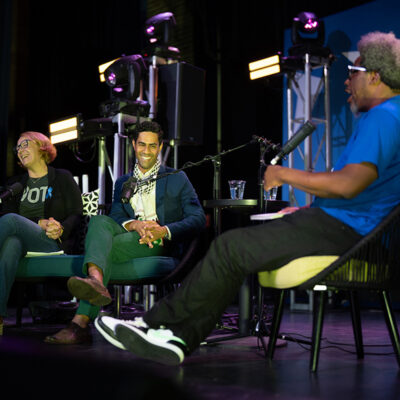Rights of Protesters
The ACLU works in courts, legislatures, and communities to defend and preserve the individual rights and liberties that the Constitution and the laws of the United States guarantee everyone in this country.

The Latest
-


Energy Transfer LP v. Greenpeace International, Unicorn Riot
-


Universities Should Protect Studentsâ Right to Protest, End Crackdown on Peaceful Protests
-

At Liberty Live with W. Kamau Bell: Detroitâs Activist Roots - Engaging Communities in the Fight for Justice
-


Free Speech Organizations Urge University of Maryland to Lift Unconstitutional âExpressive Eventâ Ban
Explore More
What We're Focused On
-

Flag Burning or Desecration
The ACLU works in courts, legislatures, and communities to defend and preserve the individual rights and liberties that the Constitution and the laws of the United States guarantee everyone in this country.
-

Protest Buffer Zone
The ACLU works in courts, legislatures, and communities to defend and preserve the individual rights and liberties that the Constitution and the laws of the United States guarantee everyone in this country.
-

Repression of Peaceful Protest
The ACLU works in courts, legislatures, and communities to defend and preserve the individual rights and liberties that the Constitution and the laws of the United States guarantee everyone in this country.
-

Spying on Protesters
The ACLU works in courts, legislatures, and communities to defend and preserve the individual rights and liberties that the Constitution and the laws of the United States guarantee everyone in this country.
What's at Stake
Know Your Rights: What to Do if Your Rights are Violated at a Protest
The right to join with fellow citizens in protest or peaceful assembly is critical to a functioning democracy and at the core of the First Amendment. Unfortunately, law enforcement officials sometimes violate this right through means intended to thwart free public expression.
In recent history, challenges to the right to protest have come in many forms. In some cases, police crack down on demonstrations through mass arrests, illegal use of force, or curfews. Elsewhere, law enforcement limits expression by corralling protesters into so-called âfree-speech zones.â And increasingly, new surveillance technologies are turned on innocent people, collecting information on their activities by virtue of their association with or proximity to a given protest.
Even without active obstruction of the right to protest, limitations on that right or fear of police intimidation can chill expressive activity and result in self-censorship. The ACLU, along with affiliates across the country, monitors the governmentâs respect for this foundational right. We interveneâthrough police departments, the courts, and the dissemination of Know Your Rights materialsâso that the right to public expression is respected for everyone.
Know Your Rights: What to Do if Your Rights are Violated at a Protest
The right to join with fellow citizens in protest or peaceful assembly is critical to a functioning democracy and at the core of the First Amendment. Unfortunately, law enforcement officials sometimes violate this right through means intended to thwart free public expression.
In recent history, challenges to the right to protest have come in many forms. In some cases, police crack down on demonstrations through mass arrests, illegal use of force, or curfews. Elsewhere, law enforcement limits expression by corralling protesters into so-called âfree-speech zones.â And increasingly, new surveillance technologies are turned on innocent people, collecting information on their activities by virtue of their association with or proximity to a given protest.
Even without active obstruction of the right to protest, limitations on that right or fear of police intimidation can chill expressive activity and result in self-censorship. The ACLU, along with affiliates across the country, monitors the governmentâs respect for this foundational right. We interveneâthrough police departments, the courts, and the dissemination of Know Your Rights materialsâso that the right to public expression is respected for everyone.